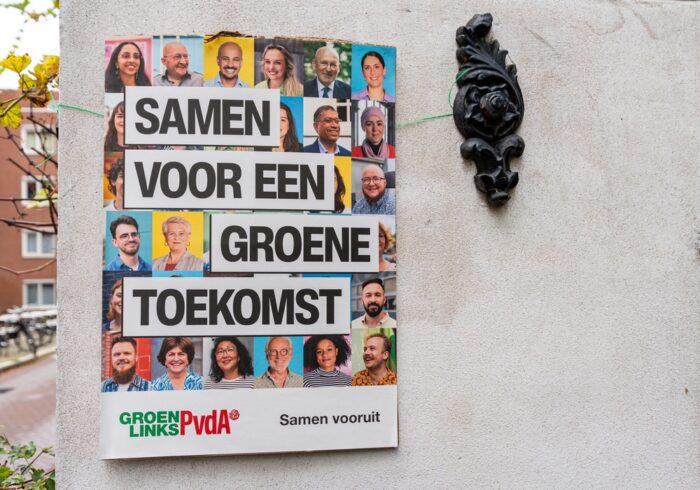The Progressive Post
Unflashy, perhaps – but on track for real improvements

Politics is full of events that are often described as ‘historic’. But Labour’s victory on Thursday 4 July truly deserves that accolade. In terms of seats and majorities in the House of Commons, the result is roughly the same as Tony Blair achieved in 1997. But 2024 represented a Labour recovery from a far deeper defeat than Labour had experienced in 1992. The 2019 general election result was the worst for Labour since 1935 – and unlike the 1990s, in 2019, the party remained firmly in the grip of a Jeremy Corbyn leadership that in policy and outlook had almost completely detached itself from the concerns of Labour’s traditional base among working people.
The result represents a remarkable turnaround for a party that five years ago looked in its death throes. The credit for this must mainly go to Keir Starmer himself, who, brilliantly advised by Morgan McSweeney, his chief political strategist, has taken the tough decisions to pull Labour around step by step.
The first decision was to change the Labour party internally. He started by rooting out the antisemitism, which by 2019 had disgraced it. He succeeded in changing the political balance of the National Executive to marginalise the Hard Left. He then, at the 2021 party conference, secured crucial constitutional changes in an act of breathtaking risk that protected the position of MPs against small groups of activists seeking to undermine their position and strengthened central supervision of candidate selection. He later persuaded the National Exectuive Committee (NEC) to resolve that Jeremy Corbyn would not be a Labour candidate in the coming general election. These were all changes that were difficult within the party which weaker leaders might have dodged: yet in politics, it is sometimes more important to take tough and necessary decisions than to prioritise a mirage of party unity.
Second was the need for a changed party to rebuild trust with ordinary voters. Above all this involved reassuring the public that Labour’s instincts are sound on defence, and that a Labour government would be a steadfast member of NATO, standing up to the likes of Vladimir Putin as committed supporters of Ukraine’s fight for its freedom and independence. Rebuilding trust also involved accepting the reality of Brexit, rather than turning Labour into the party-political arm of a putative ‘Rejoin’ campaign. A large majority now accept that Brexit was a mistake, and there are few benefits to show for it. Yet, there is no public appetite for reopening old wounds. Difficult as this is for many passionate pro-Europeans like me, I nevertheless endorse the policy as necessary if we were to win back support among former Labour working-class supporters who had been persuaded (on the basis, it has to be said, of undeliverable promises and downright lies) to support the ‘Leave’ cause.
Labour’s policy in government will be strongly in favour of closer links with the EU and its member states, but without seeking to rejoin either the political structures, the single market or the customs union. Labour will seek a close partnership on defence, foreign policy and security (including migration). On trade we will try to make the botched deal that Boris Johnson had negotiated work better in both our mutual interests: Labour will be cooperators, not cherry pickers.
After the reassurance came the need to set out a credible and believable programme for government. Fundamental to this was establishing the proposition that Labour would govern sensibly, without an ideological commitment to ‘Tax and spend’ Britian’s way to a more prosperous future. This meant reestablishing economic credibility with financial markets and business, but also with an electorate that historically saw Labour as a high tax party. Keir’s appointment of Rachel Reeves as Labour’s shadow Chancellor of the Exchequer has proved crucial in this quest for credibility.
Finally came the need to establish a policy platform for the general election which offered ‘realistic hope’ of improvement in living standards that have been badly squeezed and public services that are near breaking point. Starmer’s pitch to the public is that we know only too well that we cannot achieve miracles overnight, but that Labour will govern in a commonsense unflashy way to realise step-by-step improvements. After the public’s experience of Boris Johnson and Liz Truss, overpromising, underdelivering and turning the practice of government into a chaotic drama, this prospect is quite meaningful to the public.
Critics of Starmer’s election success will point to Labour’s relatively disappointing national vote share at around 35 per cent. In the 2017 general election, which Labour lost, Jeremy Corbyn scored a 40 per cent share. But this election occurred within twelve months of the 2016 Brexit referendum, when the vast majority of those who opposed Brexit, or wanted a Brexit that kept the UK as close to the EU as possible, rallied around Labour. This time, Labour’s share of the vote fell because of significant Liberal Democrat recovery in parts of suburban and rural England where Labour has never had a strong presence (which deprived the Conservatives of some sixty or so seats). The Greens attracted votes from Corbynistas who dislike Starmer and his moderate political pitch. But the biggest difference with 2017 was the rise of the right-wing populist Reform party under the leadership of Nigel Farage which polled a consistent 15-20 per cent except in the large cities and Scotland.
Faragism is not new: we had a surge of UKIP in 2015 and the Brexit party would have performed much better in 2019 had Farage not agreed to withdraw his candidates standing against Conservatives on the promise that Boris Johnson would pursue a Hard Brexit. I find the strength of Farage support profoundly disturbing. He plays the role of the anti-establishment populist to perfection. His policy prescriptions, if they can be described as such, are a mix of the vacuous and alarming. He is aiming for a realignment of the right in British politics which in my view would be against the UK national interest following the model that appears to be leading to the evisceration of Les Republicains in France.
To counter this right populism, Labour in office must not play the populist game. Rather we should expose fully the complexity of the disasters the Conservatives have left as Labour’s inheritance. These are so numerous that it would take another article to list them fully. Apart from the scandal of rising child poverty and increasing inequality of opportunity, they include a breakdown in the prison service, financial crises in local authorities unable to cope with more cuts, privatised water utilities on the verge of bankruptcy, disastrously weakened armed forces, multiple problems in our NHS and social care, a crisis of kids not attending school, underfunded further and higher education, and many more. We should carefully prioritise where we can make immediate improvements. We should recognise more explicitly that public investment is the key to both reform of public services and their working practices, as well as getting the economy growing again.
Labour is right to prioritise growth. A stable economic environment, combined with planning reform, will promote private investment. I also believe in industrial activism and helped bring it back into fashion in 2008-2009, but to achieve results it requires a consistent partnership with the private sector over the longer term: this applies to the climate transition as well as technology policy. If we go for quick fixes, we will get it wrong. Everything we do has to be credible, carefully costed and properly thought through. ‘Announcement politics’ will only strengthen public disillusion and right-wing populism.
The situation we inherit is terrible, but I cannot think of a person who by temperament is more suited to offer practical remedies than Keir Starmer. In time the public will come to love and respect our new Clem Attlee.
Photo Credits: Shutterstock.com/MartinSuker




